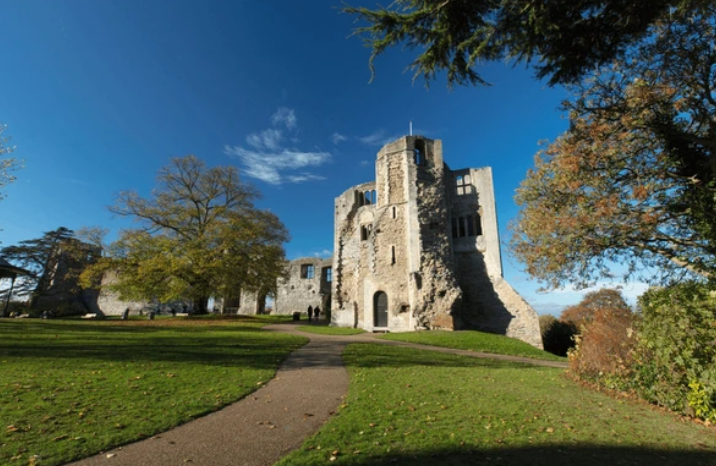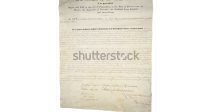Introduction: A Monarch’s Demise and Its Impact on England
The death of King John on October 19, 1216, marked the end of one of the most turbulent reigns in English history. King John, often remembered as one of England’s most reviled monarchs, left behind a kingdom in chaos. His reign was characterized by military failures, disputes with the nobility and the Church, and the signing of the Magna Carta, a document that would come to be seen as a cornerstone of English liberty. John’s death, which occurred during a civil war against a group of rebelling barons and the invading French forces, brought an end to his troubled reign but left England at a crossroads.
King John’s legacy is a complex one. While he is often vilified in historical accounts for his tyranny, inefficiency, and failures as a ruler, his reign also laid the groundwork for significant developments in English governance. The circumstances surrounding his death and the immediate aftermath played a crucial role in shaping the future of the English monarchy and the relationship between the crown and the nobility.
Read Also : Margaret Thatcher Becomes Prime Minister (1979): The Beginning of a New Political Era
The Reign of King John: A Troubled and Controversial Rule
King John’s reign was marked by a series of crises that led to widespread discontent among his subjects and ultimately culminated in rebellion.
The Loss of Normandy: A Major Blow to King John’s Rule
One of the most significant events of King John’s reign was the loss of Normandy, which had been part of the Angevin Empire under his father, Henry II, and his brother, Richard the Lionheart. John inherited the English throne in 1199, following Richard’s death, but his rule over the Angevin territories in France quickly came under threat.
John’s failure to defend Normandy against the forces of King Philip II of France was a major blow to his reputation and authority. In 1204, after a series of military defeats, John lost control of Normandy, which was a significant part of the English crown’s possessions in France. The loss of Normandy not only diminished John’s standing among his nobles but also weakened the economic and military power of the English crown.
The loss of Normandy had far-reaching consequences for John’s reign. It fueled discontent among the English barons, who were increasingly frustrated with John’s military failures and heavy taxation to fund his campaigns. This discontent would eventually lead to open rebellion against the king.
The Conflict with the Church: King John’s Excommunication
Another major source of conflict during King John’s reign was his dispute with the Church. The conflict began in 1205 when John refused to accept Stephen Langton as the Archbishop of Canterbury, a position to which he had been appointed by Pope Innocent III. John’s refusal to recognize Langton led to a bitter standoff between the king and the pope.
In 1208, Pope Innocent III placed England under an interdict, which effectively suspended all religious services in the kingdom. The interdict was a severe punishment that caused widespread fear and uncertainty among the English people. In 1209, John was excommunicated by the pope, further isolating him from the Church and undermining his authority as king.
The excommunication of King John had significant political and social consequences. It weakened his position among his subjects, many of whom saw the excommunication as a sign that John was an illegitimate ruler. The conflict with the Church also strained John’s relationship with the English nobility, who were already unhappy with his heavy-handed rule. Ultimately, the dispute with the Church was resolved in 1213 when John agreed to become a vassal of the pope, but the damage to his reputation had already been done.
The Magna Carta: A Forced Concession and Its Legacy
The most famous event of King John’s reign was the signing of the Magna Carta in 1215. The Magna Carta, or Great Charter, was a document forced upon John by a group of rebel barons who were unhappy with his rule. The document sought to limit the king’s powers and protect the rights and privileges of the nobility.
The Magna Carta was not originally intended to be a broad statement of rights for all Englishmen; rather, it was a practical solution to the immediate grievances of the barons. However, over time, it came to be seen as a foundational document in the development of constitutional government. The Magna Carta established the principle that the king was not above the law and that his subjects had certain rights that must be respected.
John’s agreement to sign the Magna Carta was a significant moment in English history, but it was also a reluctant concession. Almost immediately after signing the document, John sought to have it annulled by the pope, which led to renewed conflict with the barons. The failure to uphold the Magna Carta and the ongoing tensions with the nobility contributed to the outbreak of civil war in 1215, known as the First Barons’ War.
The First Barons’ War: A Kingdom in Turmoil
The final years of King John’s reign were dominated by the First Barons’ War, a conflict that would ultimately lead to his death.
The Rebellion of the Barons: The Road to Civil War
The First Barons’ War began as a direct result of King John’s refusal to abide by the terms of the Magna Carta. The barons, frustrated by John’s continued abuses of power and his attempts to overturn the charter, rose in rebellion against the king. The conflict quickly escalated as the barons sought to depose John and replace him with Prince Louis of France, the son of King Philip II.
The barons’ rebellion gained significant support, particularly in the southeast of England and in London, where John’s rule was deeply unpopular. The rebels were able to capture key castles and fortifications, further weakening John’s position. The civil war created widespread instability and uncertainty throughout the kingdom, as both sides engaged in brutal and destructive warfare.
Despite his efforts to suppress the rebellion, John struggled to maintain control of the kingdom. The war dragged on, with neither side able to secure a decisive victory. As the conflict continued, the pressure on John mounted, and his health began to deteriorate.
The Invasion of Prince Louis: A New Threat to John’s Throne
In 1216, the situation took a dramatic turn when Prince Louis of France invaded England with the support of the rebel barons. Louis’s invasion was a direct challenge to John’s authority, as the French prince sought to claim the English throne for himself. Louis landed in England in May 1216 and quickly gained the support of many of the rebel barons, who saw him as a more favorable alternative to John.
The invasion of Prince Louis further destabilized the kingdom and placed John’s rule in even greater jeopardy. Louis’s forces captured several key towns and castles, including Rochester and Winchester, and the French prince was even proclaimed king by some of his supporters. John, however, continued to resist, rallying his remaining loyalists to fight against the invaders.
As the conflict dragged on, John faced the very real possibility of losing his throne. The war took a heavy toll on both sides, and the kingdom was plunged into chaos. It was in the midst of this turmoil that John’s health finally gave out, leading to his death in October 1216.
The Death of King John: A Turning Point in the Civil War
King John died on October 19, 1216, at Newark Castle in Nottinghamshire. His death came at a critical moment in the First Barons’ War, as the kingdom teetered on the brink of collapse. John’s death brought an end to his troubled reign, but it also left England in a precarious situation.
John’s nine-year-old son, Henry III, was immediately proclaimed king upon his father’s death. The young king’s supporters, led by William Marshal, Earl of Pembroke, quickly moved to secure his position and bring an end to the civil war. Marshal, who was appointed regent, played a key role in negotiating a settlement with the rebel barons and persuading them to abandon their support for Prince Louis.
John’s death proved to be a turning point in the war. With the unpopular king gone, many of the rebel barons were willing to reconcile with the new regime. The war gradually petered out, and by 1217, Louis had been forced to withdraw from England, bringing an end to the conflict.
The Legacy of King John: A Controversial Monarch in History
King John’s legacy is one of the most debated in English history. He is often remembered as a tyrannical and inept ruler, but his reign also had a lasting impact on the development of the English monarchy and governance.
The Reputation of King John: Villain or Victim of Circumstance?
King John’s reputation has been shaped by centuries of historical accounts, many of which have cast him in a negative light. Medieval chroniclers, such as Matthew Paris, portrayed John as a cruel and unscrupulous ruler, whose reign was marked by greed, deceit, and incompetence. Later historians and writers, including Shakespeare, further cemented John’s reputation as one of England’s worst monarchs.
However, some modern historians have argued that John’s failures were not entirely of his own making. They point to the difficult circumstances he inherited, including the loss of the Angevin Empire and the ongoing conflicts with France. Additionally, John’s conflicts with the nobility and the Church were part of a broader struggle for power that characterized much of medieval Europe.
While John’s reign was undoubtedly a troubled one, it also played a crucial role in shaping the future of the English monarchy. The Magna Carta, which was forced upon John, became a foundational document in the development of constitutional government, and the lessons learned from his reign influenced the way subsequent monarchs governed.
The Impact of the Magna Carta: A Lasting Legacy
The most enduring legacy of King John’s reign is the Magna Carta. Although John himself sought to undermine the charter, it has come to be seen as one of the most important documents in the history of English law and governance. The Magna Carta established the principle that the king was subject to the law and that his subjects had certain rights that must be respected.
Over time, the Magna Carta became a symbol of the struggle for liberty and justice. It influenced the development of constitutional law in England and other countries, including the United States, where it served as an inspiration for the Founding Fathers and the drafting of the U.S. Constitution.
The legacy of the Magna Carta is a testament to the enduring impact of King John’s reign, despite its many failures. The document that was forced upon him by his rebellious barons has become a cornerstone of democratic governance and the rule of law.
Conclusion: The End of King John’s Reign and Its Historical Significance
The death of King John in 1216 marked the end of a troubled and controversial reign that had left England in a state of turmoil. While John is often remembered as one of England’s most unpopular monarchs, his reign also had a lasting impact on the development of the English monarchy and governance. The conflicts and crises of his reign, including the loss of Normandy, the dispute with the Church, and the signing of the Magna Carta, played a crucial role in shaping the future of England.
John’s death brought an end to the First Barons’ War and paved the way for the reign of his son, Henry III. The resolution of the conflict and the eventual acceptance of the Magna Carta by subsequent monarchs helped to lay the foundations for the development of constitutional government in England.
While King John’s legacy is a complex and contested one, there is no denying the significance of his reign in the broader history of England. His troubled rule and its aftermath continue to be studied and debated by historians, and the lessons of his reign remain relevant to this day.
FAQ About the Death of King John (1216)
What led to King John’s unpopularity?
King John’s unpopularity was due to a combination of military failures, heavy taxation, disputes with the Church, and his tyrannical rule. His loss of Normandy, conflict with the nobility, and the imposition of the Magna Carta further damaged his reputation.
How did King John’s death affect the First Barons’ War?
King John’s death in 1216 was a turning point in the First Barons’ War. His death allowed his supporters to rally around his young son, Henry III, and helped to bring an end to the conflict. Many rebel barons were willing to reconcile with the new regime, leading to the withdrawal of Prince Louis of France.
What is the significance of the Magna Carta?
The Magna Carta, signed by King John in 1215, is one of the most important documents in the history of English law. It established the principle that the king was subject to the law and that his subjects had certain rights. The Magna Carta has had a lasting impact on the development of constitutional government.
How is King John viewed in history?
King John is often viewed as one of England’s worst monarchs, remembered for his cruelty, incompetence, and failures as a ruler. However, some historians argue that his reputation is partly the result of the difficult circumstances he faced and that his reign had a lasting impact on the development of English governance.
What happened after King John’s death?
After King John’s death in 1216, his nine-year-old son, Henry III, was crowned king. Under the leadership of William Marshal, the Earl of Pembroke, the new regime was able to bring an end to the First Barons’ War and stabilize the kingdom. The Magna Carta was reissued with modifications, and Henry III’s reign marked a period of consolidation for the English monarchy.







I have taken notice that in cameras, unique receptors help to target automatically. The sensors connected with some cams change in contrast, while others make use of a beam involving infra-red (IR) light, particularly in low light. Higher standards cameras occasionally use a combination of both techniques and might have Face Priority AF where the photographic camera can ‘See’ your face and concentrate only upon that. Many thanks for sharing your opinions on this website.